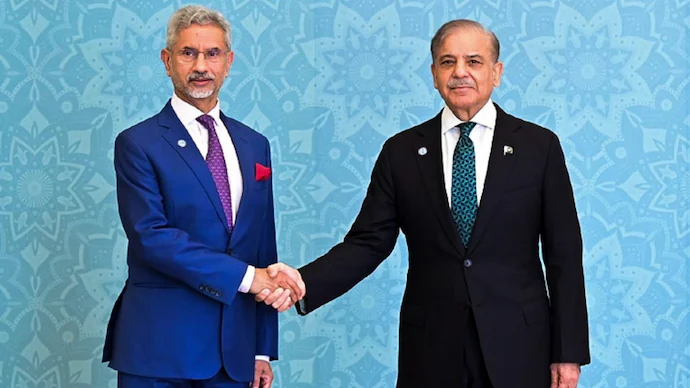The Shanghai Cooperation Organization (SCO) has remained an essential diplomatic platform for India and Pakistan-two neighbors whose relationship has been more or less an involved balance of tensions. Thus, the recent SCO meet has yet again presented an indirect interface between the two nations. We discuss below the outcomes, challenges, and possibilities for the future of the India-Pakistan relationship in the wake of the SCO meeting.
1. Background of the SCO Meeting
The SCO is a multilateral organization focused on regional security, economic cooperation, and cultural exchange. India and Pakistan are full members of this organization. It further allows these nations to work together on common issues such as counter-terrorism, climate action, and trade development, aside from regional powers like China and Russia. Yet again, political undercurrents between India and Pakistan generally affect the spirit of collaboration at such forums.
Nothing changed this time either. There was no session schedule for the bilateral agenda, but hopes and speculations about mild diplomatic backchannel interactions arose in the presence of both Indian and Pakistani delegations.
2. Takeaways on India-Pakistan Relations
No direct talks were engaged, but a number of indirect signals emanate:
1. Cooperation on Security Issues:
Both agreed to continue combating terrorism-an issue oft repeated by India against Pakistan. India has been consistent in international forums, saying peace can only come if terror infrastructure is wiped off. Pakistan is keen on trying to resolve political grievances so that regional turbulence can be worked upon less.
2. Trade and Economic Cooperation Opportunities :
The SCO could provide a framework for Central Asian economic connectivity. The INSTC has underlined having significant importance for trade with India, while Pakistan discussed its commitment to CPEC. However, cross-border trade remains a casualty of political differences.
3. Diplomatic protocols and symbolism:
Such meetings often scrutinize body language from leaders, informal gestures, and seating arrangements. While no significant diplomatic breakthroughs were made, inasmuch as the two nations discussed shared challenges within the broader SCO framework, it would seem that an avenue for better ties has been opened.
3. Challenges Keeping the Relationship Afloat
Several challenges that have continued to plague the bilateral relationship include:
Kashmir Issue: India asserts with confidence that Kashmir is its internal matter. Pakistan, on the other hand, feeds it in international forums as a human rights issue. Such contradictions do not help move forward practically.
Terrorism Charges: India has been accusing Pakistan of harbouring terrorism within the country for ages. Pakistan would respond to such charges by seeking a conversation with India. Both the countries need to find a balance for this security issue.
Geopolitical Alliances: Sino-Pak close ties and a strategic partnership between India and the U.S. multiplies their relationship as both alliances introduce other interests outside of South Asia.
4. Opportunities for Better Relations
Some of the areas can be leveraged to make some ground for cooperation:
Climate Change and Environmental Issues:Both countries suffer from terrible environmental crises, from flooding, air pollution, to water scarcity. The parties may cooperate in climate action to rebuild trust.
Regional Trade Connectivity: The removal of the trade barriers would increase economic co-operation and both the nations would benefit by facilitating regional corridors like the INSTC.
Sports and Cultural Exchange: Restoring people-to-people connect through cricket diplomacy and cultural exchange may gradually decrease the hostility
5. Multilateral Forums Like SCO: All this would have been feasible with the presence of a co-operative multilateral atmosphere created through forums like SCO.
The SCO is also important for maintaining contacts and interaction between India and Pakistan. Although the process of bilaterals is still stalled, in multilateral forums like the SCO, both countries can communicate indirectly with each other and express their views on broader issues. Forums like the SCO may also promote confidence-building measures that can eventually lead to direct dialogue.
6. Conclusion: A Long Road Ahead
While the recent SCO meeting had very little by way of breakthroughs, it has underscored the significance of dialogue and multilateral engagement. India and Pakistan are stuck in this complicated dance set out by political acrimony, security fears, and geopolitics. However, that seems not so insurmountable. If these two nations were to engage on a regular basis, the eventual outcome could be a much more stable, cooperative affair-even if it is indirect.
The path to peace is long, but any form of cooperation or even informal interaction is a step in the right direction to build up relations. By focusing on cooperation over regional issues, the SCO summit will help indicate how both countries dispense such opportunities for stability and trust-building over time.
This blog post gives an insight into the prevailing dynamics between India and Pakistan after the meeting in SCO. It very aptly throws light on the challenges as well as opportunities for further cooperation.
